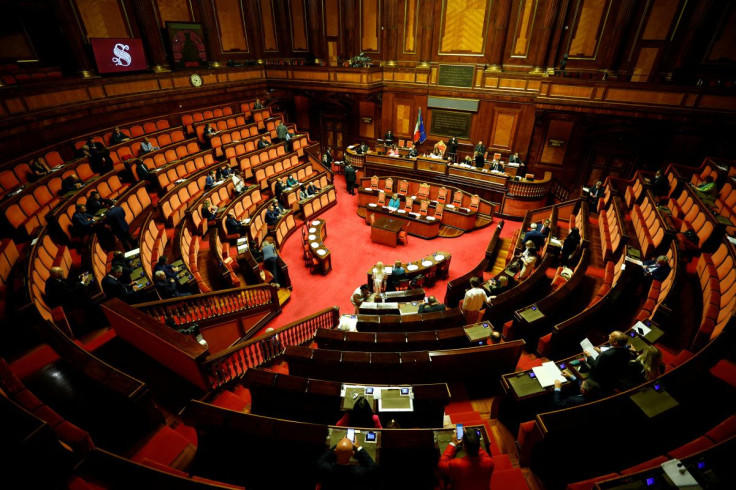Italian Government Could Fall As 5-Star Shuns Confidence Vote

Italian Prime Minister Mario Draghi's coalition government appeared close to collapse on Thursday after the 5-Star Movement, one of its members, said it would not take part in a parliamentary confidence vote.
Other coalition parties have warned that they will quit the government if 5-Star boycotts the vote in the Senate which is due later in the day, while Draghi himself said this week that he would not head an administration without the 5-Star on board.
The 5-Star decision plunges Italy into political uncertainty, risks undermining efforts to secure billions of euros in European Union funds, and could lead to early national elections in the autumn.
Italy is due to vote by the first half of next year and tensions have been rising between members of a coalition in place since early 2021 and straddling both sides of the political divide.
The prospect of a political crisis was felt in financial markets where Italian bond yields rose sharply, indicating investors demanding a higher premium to hold its debt, and shares fell.
After a day of intense party discussions, 5-Star leader Giuseppe Conte announced late Wednesday that it would not support the confidence motion, saying the government should be doing more to tackle growing social problems in the euro zone's third largest economy.
"I have a strong fear that September will be a time when many families will face the terrible choice of paying their electricity bill or buying food," he said, referring to a sharp spike in energy costs.
PRESIDENT COULD STEP IN
The prime minister said on Tuesday that if 5-Star stopped backing the government it would be up to President Sergio Mattarella to decide what to do next.
However Draghi, a former president of the European Central Bank, also said he would not be willing to lead a new government without 5-Star in the cabinet.
Two coalition parties, the rightist League and centre-left Democratic Party (PD), said on Wednesday that early elections were the most likely outcome if the government imploded.
Bringing forward the ballot to the autumn would be highly unusual in Italy because that is the time when governments traditionally draw up their budgets, which must be approved by the end of the year.
President Mattarella could try to persuade Draghi to stay on and put his government to another formal confidence vote in the coming days.
The president could also seek to appoint a new short-term leader to steer Italy to elections next year.
(Writing by Keith Weir; Editing by Crispian Balmer)
© Copyright Thomson Reuters 2024. All rights reserved.











